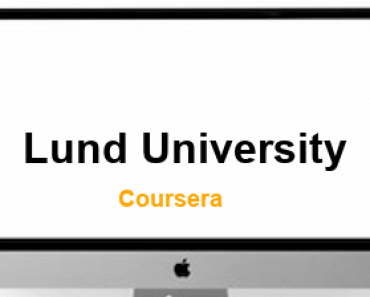Description
The European Union is one of the world’s largest and most important economies. This five week course is the first in a series of three that will provide students with an insight into European Business Law. The series ranges from considering the basic structures and principles of the European Union to focusing on various specialized areas of law. Each course will give the students an understanding of the laws and policies that regulate the internal market of European Union, as well as relevant case law and useful inputs from leading practitioners in the field.
At the end of this course series, you will have a basic understanding of how to:
• Navigate EU legal sources
• Understand relevant laws and regulations governing the internal European Union market
• Apply the fundamental principles of EU law within the EU legal framework
• Utilize the rules of freedom of movement and their impacts on trade in the EU
• Relate EU law with national laws
• Understand EU policies and their influence on foreign trade and investment
About the Series
In the first course, Understanding the Fundamentals, we will examine the core structures and principles of the European Union as well as the main sources of law. In the second course, Doing business in Europe, we will focus on the main laws that regulate various aspects of establishing and running a business within the European Union. In the final course, Competing in Europe, we will go into more depth about how to compete on the internal market and protect your brand, product or invention.
To keep up to speed on the course series, visit our Facebook page at:
https://www.facebook.com/eblmooc/
Syllabus and Format
Each course consists of a number of modules where one module represents about one week of work. A module includes a number of lectures and readings, and finishes with a voluntary assessment – a quiz, a small peer graded assignment or a case law review. The assessments are intended to encourage learning and ensure that you understand the material of the course. Participating in forum discussions is voluntary.
Course I – Understanding the Fundamentals
Module 1. Introduction to EU law
Module 2. Legal Method and Sources
Module 3. Constitutional Freedoms and Fundamental principles
Module 4. Freedom of Movement
Module 5. The External Dimension
Course II – Doing Business in Europe
Module 1. Making Business Transactions
Module 2. Establishing a Company
Module 3. Employing and Working in Europe
Module 4. Paying Taxes and Complying with Environmental Standards
Module 5. Case Clinic
Module 6. Resolving Cross-border Disputes
Course III – Competing in Europe
Module 1. Trademarks as Essential Assets
Module 2. Defending Patents
Module 3. Competition: Illegal Agreements
Module 4. Competition: Abuse of Dominance and Mergers
Module 5. Advocacy and Legal Writing
Module 6. Selling to the State and State Aid
Lund University
Lund University was founded in 1666 and has for a number of years been ranked among the world’s top 100 universities. The University has 47 700 students and 7 500 staff based in Lund, Sweden. Lund University unites tradition with a modern, dynamic, and highly international profile. With eight different faculties and numerous research centers and specialized institutes, Lund is the strongest research university in Sweden and one of Scandinavia’s largest institutions for education and research. The university annually attracts a large number of international students and offers a wide range of courses and programmes taught in English.
The Faulty of Law is one of Lund University’s four original faculties, dating back to 1666. It is a modern faculty with an international profile, welcoming both international and Swedish students. Education, research and interaction with the surrounding community are the main focus of the Faculty’s work. The connection between the three is particularly apparent in the programmes and courses offered by the university, including the university’s MOOC course in European Business Law. The students get the chance to engross themselves in traditional legal studies, while interacting with both researchers and professionally active lawyers with qualifications and experience from various areas of law.
The faculty offers three international Masters: two 2-year Master’s programmes in International Human Rights Law and European Business Law, and a 1-year Master’s in European and International Tax Law. Students from around 40 countries take part in the programmes which offer a unique subject specialization within each field, with highly qualified researchers and professional legal practitioners engaged in the teaching.
The Master’s programme in European Business Law provides an in-depth understanding of both the practical and the theoretical aspects of business law within the European Union. The programme provides both general and specific knowledge of the European Union legal framework, which is necessary for students intending to work as legal advisors or business decision-makers. The programme is delivered in English and is open to students with at least a three year degree in Law (Bachelor, LL.B, or equivalent) who want to specialise in European economic and business law.
The MOOC course in European Business Law is a great course to start with for students intending to apply for the Master’s programme in European Business Law. Even though the MOOC course does not grant credits previous knowledge of the subject is considered upon admission to the master’s programme. For more information about the Master’s programme in European Business Law see https://www.law.lu.se/#!meb
Price: Enroll For Free!
Language: English
Subtitles: English
European Business Law: Understanding the Fundamentals – Lund University
TUN Helps Students!
Scholarships
Community
Copyright, 2024 – TUN, Inc

